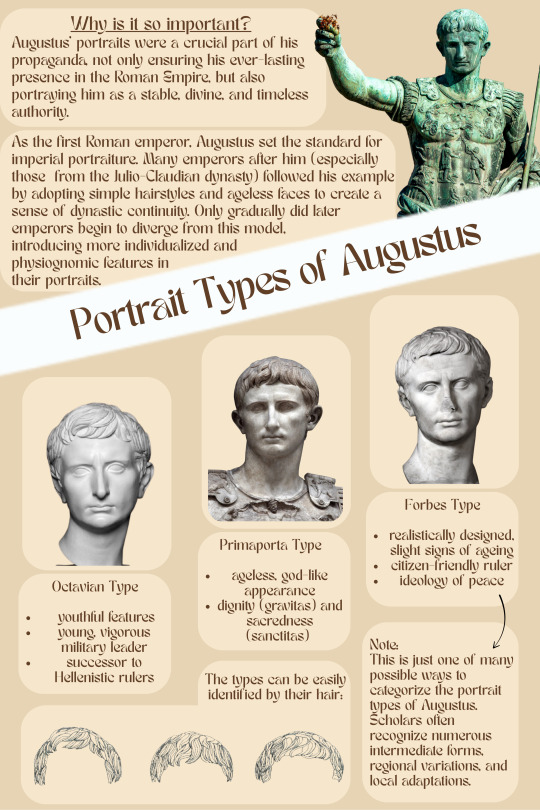Text

Marble statue of an old woman, Julio-Claudian period. Probably a Roman copy of the Greek original.
Metropolitan Museum of Art.
259 notes
·
View notes
Text
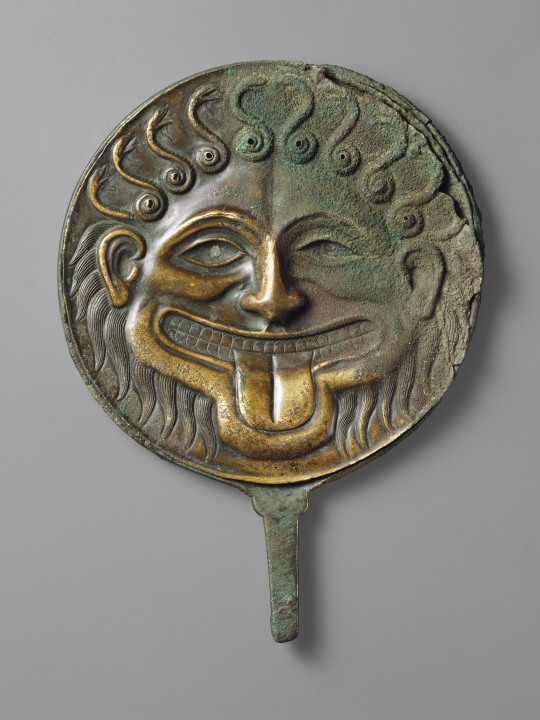
Bronze hand-held mirror decorated with an image of Medusa, probably created in one of the Greek colonies in Southern Italy around the late 6th century BC. Now at Getty Museum.
#ancient history#ancient art#ancient greece#magna graecia#medusa#greek mythology#mirror#bronze artefact#beautiful#ancient culture
285 notes
·
View notes
Text

A quick chart displaying which emperors got overrepresented in The Twelve Caesars by how much of the text they took up vs how much of the 123-year period they ruled. Obviously Galba, Otho and Vitellius get multiple pages while ruling for no time at all; obviously Augustus isn't going to take up a full third of the page count. It's impressive to see how much of an impression Caligula made in such a short time.
It does feel like Vespasian and Domitian got shafted by... Suetonius maybe just trailing off at the end a bit? Domitian has the longest reign since Tiberius but barely more coverage than Galba, poor thing.
28 notes
·
View notes
Text
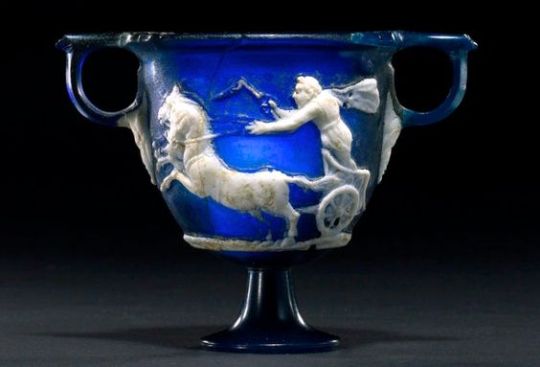


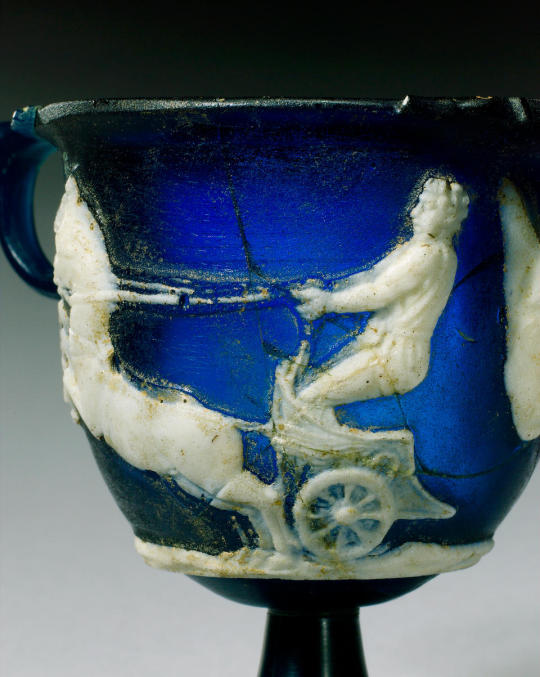
An exquisite Roman glass skyphos (two-handled cup) with a cameo of charioteers, dated to the first half of the 1st century AD.
455 notes
·
View notes
Text





Dancing figures from Etruscan tomb frescoes.
790 notes
·
View notes
Text

Marble head of Emperor Augustus, Louvre Abu Dhabi.
#emperor augustus#ancient rome#roman empire#ancient art#ancient history#augustus#bust#marble bust#he kinda looks more mature here than in most of his other portraits
359 notes
·
View notes
Text

The Goddess of Victory driving a two-horse chariot (so-called biga), a tomb fresco from Paestum, Lucania.
560 notes
·
View notes
Text


Terracotta figure of two women sitting on a couch, from Asia Minor, now in the British Museum.
One of the women is older than the other and it has been speculated it could be Demeter and Persephone.
185 notes
·
View notes
Text




In the Ancient Greek world aryballos (pl. aryballoi) was a small round flask containing oil or perfume. They were usually spherical or conical, but sometimes they were in animal shapes like these here: a hare, a swan, an owl, and a hedgehog, respectively.
548 notes
·
View notes
Text





Veiled heads of the Roman emperors of the Julio-Claudian dynasty. So-called capite velato (usually fold of the toga draped over the top of the head) was a show of piety during religious sacrifice, and in art it underlines the individual's role as a priest, in the case of the emperors that of the pontifex maximus.
During the Republic, the office of the pontifex maximus, Rome's highest priest, was elective. Augustus became pontifex maximus in 12 BC and from then on the position was automatically assumed by each successive emperor upon their ascension.
#ancient rome#roman empire#ancient history#ancient art#julio claudian dynasty#ancient culture#emperor augustus#emperor tiberius#emperor caligula#emperor claudius#emperor nero#statue#roman statue#bust#capite velato#roman emperor#pontifex maximus
205 notes
·
View notes
Text

Terracotta statue of young Etruscan woman, noted for the detail of the jewelry that she is wearing. The statue is now located in the Metropolitan Museum of Art.
#etruscan#statue#terracotta statue#etruscans#etruria#tuscany#met#art#ancient art#etruscan art#ancient italy
501 notes
·
View notes
Text
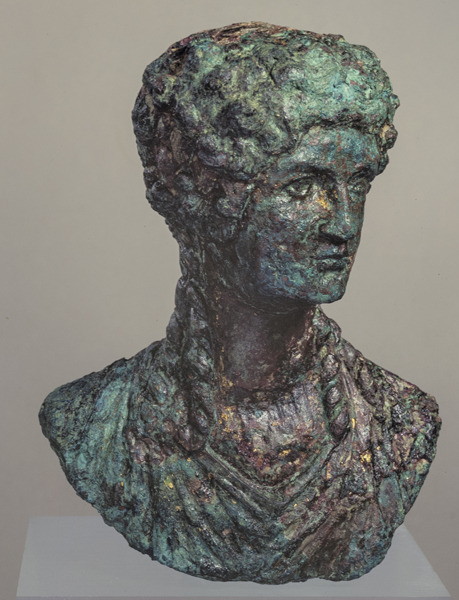
Gilded bronze bust portrait of Agrippina Minor, last wife of Claudius and mother of Nero, originally from Alba Fucens.
245 notes
·
View notes
Text






Various copies of one the antiquity's most popular statues - The Crouching Venus, portraying the goddess startled while taking a bath.
Farnese Venus, now in the National Archeological Museum of Naples.
Lely Venus, now in the British museum.
An example now exhibited at Palazzo Altemps, Rome.
A statue from Uffizi, Florence, was part of the Medici collection.
A statue discovered at Hadrian's villa in Tivoli, now in Palazzo Massimo, Rome.
So-called Venus of Vienne, now in the Louvre.
265 notes
·
View notes
Text
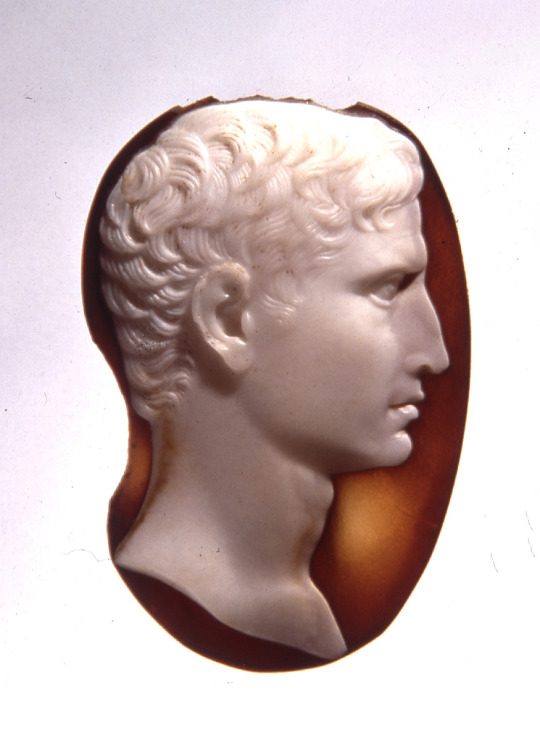
Cameo portrait of Augustus, part of the collection of so-called "Farnese gems", now housed in the Archaeological Museum of Naples.
147 notes
·
View notes
Text




Various Greek (and Roman) masks of Dionysus in terracotta, ivory, bronze and amber.
1K notes
·
View notes
Text

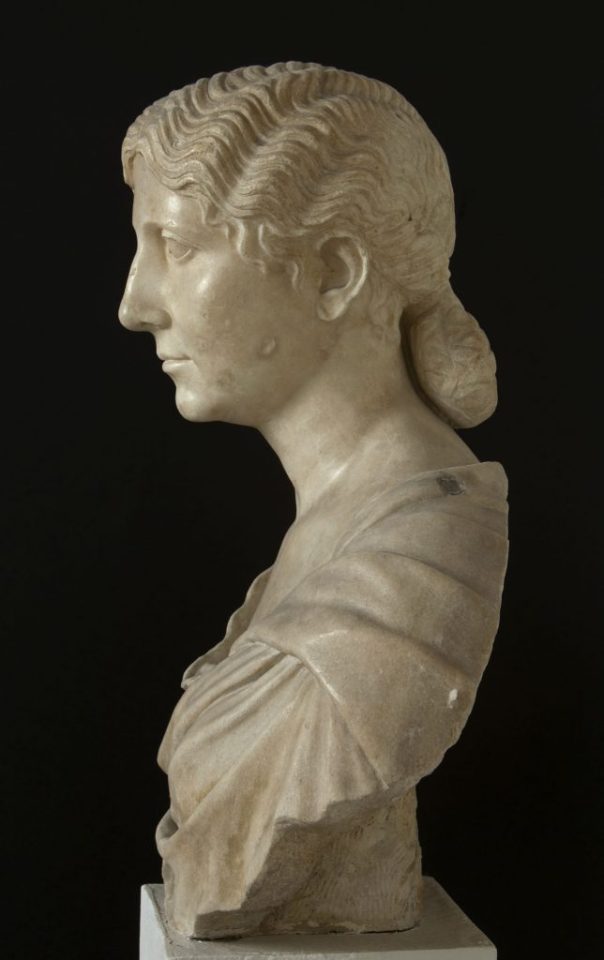
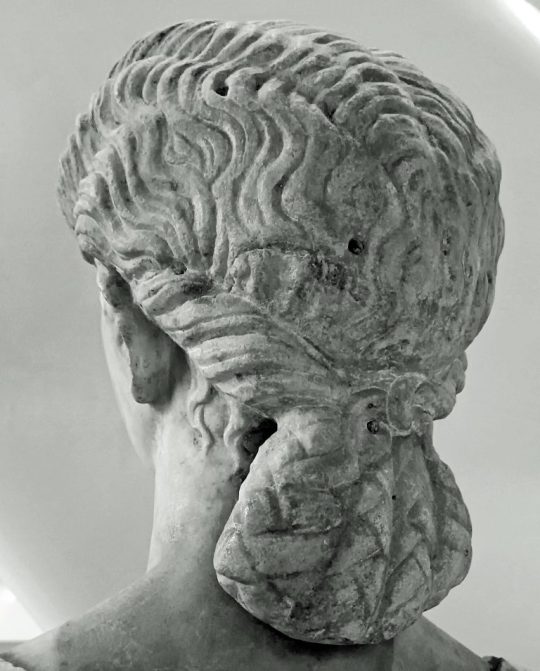
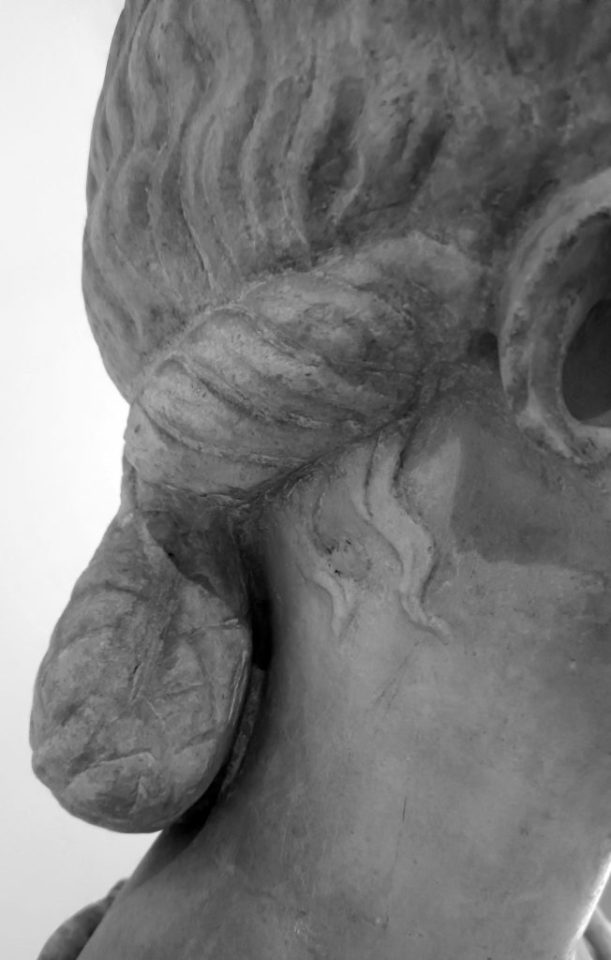
The bust of Antonia Minor from Venice Archaeological Museum.
The younger daughter of Marcus Antonius and Octavia Minor, wife of Drusus the Elder and mother of Germanicus, Livilla, and Claudius, Antonia was held up as an example of a proper Roman matron, always dignified in her public and private dealings, severe with her children and loyal to her deceased husband's memory, refusing to remarry after his untimely death, earning her the status of univira (a woman who was married only to one husband in her life).
#ancient rome#statue#ancient culture#ancient history#roman empire#julio claudian dynasty#antonia minor#antonia the younger#if ancient writings are to be believed she starved her daugher to death as a punishment for conspiracy against tiberius#and called her disabled son a half-finished monster
121 notes
·
View notes
